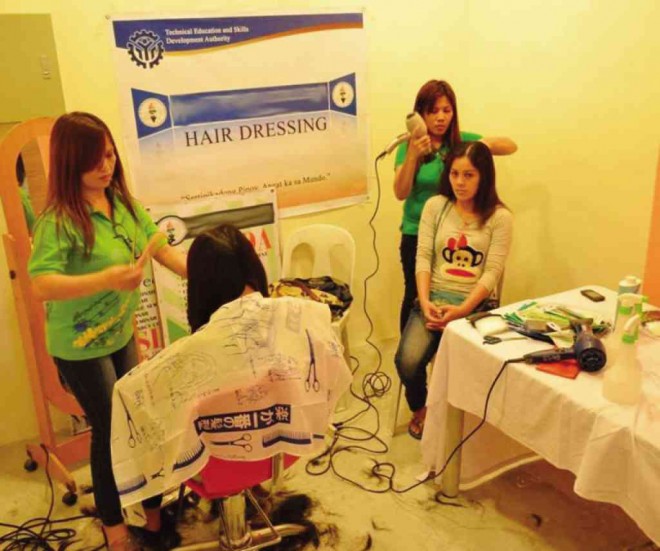
Tesda training on hairstyling
MANILA, Philippines — Opening up higher education institutions to foreign ownership will assist technical vocational schools in producing more quality workers and enhance the country’s standing in global trade, the Technical Education and Skills Development Authority (Tesda) said on Tuesday.
Tesda made this remark during the 4th Senate hearing on Resolution of Both Houses No. 6 (RBH 6), which seeks to amend the 1987 Constitution’s provisions, specifically on education, advertising, and public utilities.
According to Tesda Deputy Director-General Rosanna Urdaneta, allowing foreigners to enter the Technical Vocational Education and Training (TVET) sector will enable students to adapt to technological advancements and evolving global labor market standards.
“The TVET sector has to keep abreast of modern educational needs to be relevant and responsive to the workforce needs of the community, the industry, and the economy in general,” Urdaneta said.
“TESDA supports this amendment and welcomes foreign participation and cooperation to reinforce the educational and technological needs in higher-level TVET qualifications,” she added.
The TESDA official explained that aligning the country’s technical vocational training with industry requirements and standards requires significant capital, which foreign investments could provide.
When prodded by Senator Ronald “Bato” dela Rosa, the TESDA official clarified that the agency supports RBH 6’s initiatives on foreign ownership for “highly technical courses.”
Meanwhile, the Philippine Chamber of Commerce and Industry (PCCI) also voiced support for foreign ownership of educational institutions in the country, saying that “quality jobs need quality workers, which all stem from the educational system.”
PCCI Executive Vice President Ferdinand Ferrer told senators at the public hearing that without quality education, Philippine businesses will continue to incur more costs for the training of their employees.
To help curb these costs, Ferrer said the PCCI would support any measure that allows international partners to help provide students with 21st-century skills.
On the other hand, the Department of Labor and Employment (DOLE) said that while it supports allowing foreigners to own educational institutions in the country, lawmakers must ensure that this will not be to the detriment of Filipinos.
“We must ensure that the insertion of the phrase, ‘unless otherwise provided by law’ in some restrictive economic provisions of the 1987 Philippine Constitution, particularly articles 12, 14, and 16, will not contravene the Filipino First policy also enshrined in the 1987 Philippine Constitution,” DOLE Undersecretary Felipe Engargo Jr. stressed.
During the previous hearing on RBH 6, Senator Sonny Angara pointed out that the Philippines is the only country in the Association of Southeast Asian Nations that has constitutional restrictions on foreign ownership, establishment and enrollments.